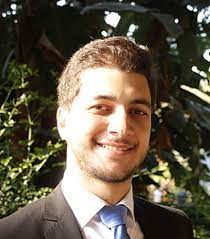
Introduction
Recently, UCC’s ‘Together 4 Palestine’ staff group welcomed Nidal Khalaf to speak about the current situation in Palestine. Organised by the Palestinian Support Group, we were privileged to hear Nidal’s insight, both his personal experience and his ability to articulate so well the Palestinian narrative. (more on him here).
Dr Khalaf began by offering an interesting look at the intertwined stories of urban and rural life in Palestine, challenging the audience to rethink commonly held narratives and explore the complexities of the region’s history and current struggles.
The Fabric of History and Culture
He discussed the significance of historical institutions, like the Baptiste Hospital in Gaza, founded in 1882 and now demolished, as a symbol of the region’s rich but often overlooked heritage. He looked at the vibrancy of Palestinian art and culture, highlighting ‘Tatriz’ embroidery as a testament to the region’s diversity.
The Nakba and Its Aftermath
Khalaf discussed the Nakba, described as a “Systematic Genocide.” He traced the history from before 1948 to the present, focusing on the depopulation of Palestine and the displacement of its people. Khalaf argued that 80% of the Palestinian population was displaced due to the ideology of Zionism, which he described as a settler colonial movement intertwined with Western hegemony and U.S. imperialism.
Geopolitical Significance
Khalaf emphasised Palestine’s strategic location as a portal between continents and a key trade route, which has made it an attractive target for colonial ambitions. He described the State of Israel as a colonial project, supported by Western powers for their geopolitical interests.
Demographic Changes and Resistance
Discussing the demographic challenges faced by the region, Khalaf noted the initial welcoming of Jewish immigrants by Palestinians, followed by a shift as Zionist movements encouraged more Jewish immigration, leading to conflict and forced displacement. He highlighted various forms of Palestinian resistance over the years, including uprisings, the role of the PLO, Intifadas. He discussed the Oslo Accords.
Countering Misconceptions
Khalaf addressed common misconceptions and propaganda against Palestinians, focusing on dehumanising narratives and equating their struggle with extremist ideologies. He stressed the importance of distinguishing these false narratives from the reality of the Palestinian struggle.
Ongoing Challenges
The speaker touched upon the current issues facing Palestinians, including the situation of prisoners, international responses, and the continued struggles in various regions. He urged the audience to understand these issues in the context of ongoing geopolitical changes and the younger generation’s involvement.
Conclusion: A Story of Resilience
Khalaf concluded with a powerful message about the resilience of the Palestinian people, symbolised by the laughter of their children. He called for global solidarity and a commitment to understanding and supporting the Palestinian cause.
Implications for Education and Understanding
Khalaf’s talk provides a profound context for educators and students to critically analyse and integrate diverse perspectives on the Palestinian narrative. It emphasises the importance of understanding cultural, historical, and human rights dimensions in any discussion about the region.
